-
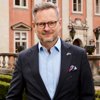
Column: ”Life as a F1 race”
"The F1 car makes several pit stops during a race and during a lifetime the human being may also have to come in several times for maintenance", Björn Ursing writes in a column.
-

New issue of Life Science Sweden!
The international issue of Life Science Sweden has been sent to press.
-

Hello Jenni Nordborg!
Life Science Sweden would like to know more about Jenni Nordborg and asks her about her new job, why she became a chemical engineer and who her role model is.
-

Fjärrprogrammerad behandling för patienter med nervsmärta
Behandling av neuropatisk smärta i hjärna och ryggmärg kan nu följas upp och omprogrammeras på distans vid Akademiska sjukhuset i Uppsala.
-

He saved lives with his theories – was ostracised and ended up in a mental hospital
Hungarian doctor Ignaz Semmelweis (1818-1865) undoubtedly possessed plenty of persistence, diligence and sound reasoning skills – but he was hardly blessed with luck and timing.
-

The new Astra Zeneca CEO: “An incredibly exciting phase”
Almost 27 years have passed since Per Alfredsson from Södertälje stepped into Astra Zeneca as a newly hired engineer. After countless different roles, including heading the production of the company’s Covid vaccine, he is now advancing to the absolute top.
-

“Everyone is screaming for talent”
Attracting talent is one of the life science industry’s major future challenges, which was one of the conclusions of the panel discussion that ended the New Horizons in Biologics & Bioprocessing conference on 15 December.
-
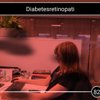
Ny app visar hur synskadade upplever världen
En ny app visar hur allt från grå starr till makuladegeneration och ålderssynthet yttrar sig — ur den synskadades synvinkel. Syftet är att ge seende en inblick i hur personer med synnedsättning uppfattar sin vardag.
-

Medtech-företag blev årets snabbväxare
Medtech-bolaget Infosolutions toppar årets rankning från Deloitte över Sveriges snabbast växande teknikbolag. På fyra år har bolaget ökat sin omsättning med 12 815 (!) procent.
-

She creates pharmaceuticals on a 3D printer
The correct dosage for each individual, regardless of whether the pharmaceutical is for a seriously ill child or a frail elderly person, is the mission of a well-advanced project with 3D-printed drugs at Uppsala University. “It will soon be available in clinics”, says Christel Bergström, who is heading the project.
-

Bubblarna på innovationslistan
Långt mer än 20 viktiga innovationer som hjälper personer till bättre hälsa har svenska upphovspersoner. Här skriver vi om ett urval av dessa som alla har kommit det senaste halvseklet.
-
Business Sweden’s new team is rolling out the blue-yellow carpet
According to Business Sweden’s life science team, the combination of substantial medical know-how and an ever-flourishing tech sector is a success factor for Sweden. “It’s a perfect storm, a beneficent, perfect storm,” says Programme Manager Britta Stenson.
-

Bought a tablet factory – and built his own empire
In 1995, Thomas Eldered was CEO of one of Pharmacia’s factories in the Stockholm area when the Swedish pharmaceutical giant, after a takeover, decided to move its production abroad. 34-year-old Thomas was facing an imminent risk of losing his job
-
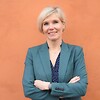
Marie Gårdmark: Potential step change – EU regulators get to play with data
A new pilot from EMA is starting in September to assess wether the analysis of 'raw data' by regulatory authorities improves the evaluation of marketing approval for new medicines. Marie Grådmark writes in a column that she is looking forward to the outcome of the pilot to hopefully then understand if “in house” analyses actually will add value.
-
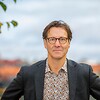
Anders Blanck about his 17 years at Lif: “The industry is enjoying greater public trust now"
The announcement came as a surprise to those around him, but according to the protagonist himself, the timing was excellent. Anders Blanck is now leaving Lif – a decision that has been growing for some time. “I have been pretty much married to my mission. However, I will turn 56 this autumn, and if I’m going to do something else in my professional life, now is the time,” he says.
-

Lucy Robertshaw: Did you know Stockholm wants to be in top 5 in the world for Life Sciences?
Karolinska Institutet Solna Campus has certainly become the next “Kendall Square”, writes Lucy Robertshaw in a column.
-

A growing industry in Denmark: “One new life science company a week”
The life science sector in eastern Denmark continues to grow in the number of employees, as well as the number of companies. An emerging problem is the shortage of labour, a new report reveals.
-

Hello Angelica Loskog!
Life Science Sweden would like to know more about Angelica Loskog and interviews her about her life as a researcher.
-

Investments worth 40 billion in the Öresund region – “A huge investment wave”
A new report reveals that medical companies in the Oresund region are investing like never before.
-

Ny modell ska identifiera rätt dos litium vid bipolär sjukdom
Ny forskning vid Karolinska institutet kan bidra till att lösa ett stort problem inom behandling av bipolär sjukdom: att hitta rätt dos litium för varje patient.
-
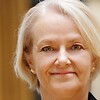
Karriärcoachen: Så minglar du bäst på kongressen – och får ett dolt jobb
Samhället har öppnat upp efter pandemin och konferenser, kongresser och Almedalen står på agendan. Men efter två år i en digital bubbla kan man känna sig ringrostig inför minglandet. Karriärcoachen Tina Persson tipsar om vad du ska tänka på inför det fysiska mötet.
-
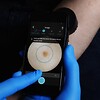
AI-diagnostik av malignt melanom prövas kliniskt
Startup-företaget AI Medical Technology inleder en klinisk prövning av sitt system för diagnos av malignt melanom på 30 svenska primärvårdskliniker.
-
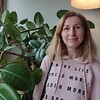
Ukrainska forskaren: ”Jag kan inte hjälpa mitt folk men jag kan berätta om kriget”
Den 24 februari klockan 05 vaknade Lesya Demchenko och hennes familj till ljudet av bomber i Kyiv. När hon tittade ut från balkongen såg hon människor som packade sina bilar för att fly och mörka moln på himlen efter rök där bomberna träffat byggnader.
-
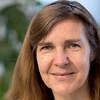
CAR-T therapies give continued hope: “Almost half of the patients have become disease-free”
When the first CAR-T therapies appeared, hopes were raised for the effective treatment for critically ill cancer patients. After a somewhat sluggish start, about 90 patients in Sweden have now been treated with this method. “Almost half of them have become disease-free, at least of those treated with Yescarta, which are the ones I know best,” says Gunilla Enblad, Chairman of the national working group for CAR-T treatment.
Få tillgång till allt innehåll på Life Science Sweden
Ingen bindningstid eller kortinformation krävs
Redan prenumerant? Logga in
Gäller endast personlig prenumeration.
Kontakta oss för en företagslösning.